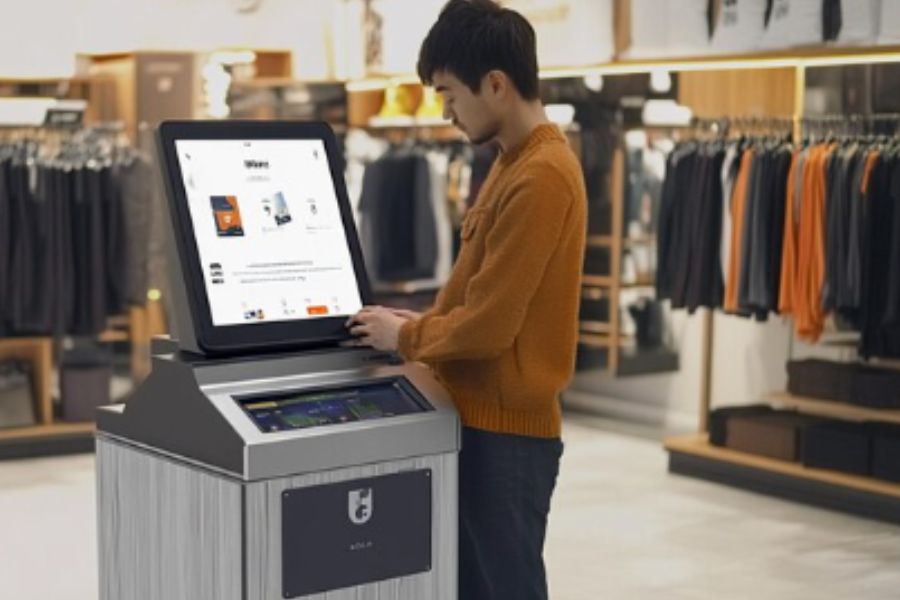When considering an EPOS system for your business, it’s important to be aware of and avoid common mistakes. This article highlights five key mistakes to watch out for, including buying the cheapest system, choosing the wrong supplier, prioritizing hardware over software, overlooking future needs, and expecting a one-size-fits-all solution. By understanding and avoiding these pitfalls, you can make a more informed decision and ensure that the EPOS system you choose meets your business’s specific requirements
What Is An EPOS System?
An EPOS system, also known as an Electronic Point of Sale system, is a computer-based technology that is used in businesses to manage and facilitate sales transactions. It combines both hardware and software components to streamline the process of conducting sales, managing inventory, and generating reports.
The core components of an EPOS system typically include a computer or a tablet, a cash register, a barcode scanner, a receipt printer, and a card payment terminal. These hardware elements work together with the EPOS software to provide a comprehensive solution for managing various aspects of a business’s operations.
The EPOS software serves as the central hub of the system, allowing users to input and process sales data, manage inventory, track customer information, and generate detailed reports. It provides an intuitive interface that enables employees to ring up sales, apply discounts, handle returns, and manage various payment methods efficiently.
Advantages And Disadvantages Of An EPOS System
Advantages of an EPOS System
- Improved Efficiency: EPOS systems automate various tasks, such as inventory management, sales reporting, and transaction processing, reducing manual effort and saving time. This allows employees to focus on other important aspects of the business.
- Accurate Sales Tracking: These systems accurately record and track sales data in real time. This provides businesses with up-to-date information on sales performance, popular products, and customer preferences, enabling them to make data-driven decisions.
- Inventory Management: EPOS systems help businesses keep track of their inventory levels, automatically updating stock quantities as items are sold. This prevents stockouts and overstocking, leading to better inventory control and reduced costs.
- Order Summary: Track purchase history and offer personalized promotions, leading to improved customer satisfaction and loyalty.
- Streamlined Checkout Process: EPOS systems make the checkout process faster and more efficient. Barcode scanners quickly scan products, reducing the chances of errors during manual entry. Integration with card payment terminals enables seamless and secure transactions.
- Enhanced Reporting and Analysis: EPOS systems generate detailed reports on sales trends, stock levels, and customer behavior. This data can be analyzed to identify patterns, optimize pricing strategies, and make informed business decisions.
Disadvantages of an EPOS System
- Initial Cost: Implementing an EPOS system can involve a significant upfront investment, including the cost of hardware, software, and installation. This expense may pose a challenge for small businesses with limited budgets.
- Technical Issues: Like any computer-based system, EPOS systems can experience technical glitches or software malfunctions. These issues may disrupt operations and require technical support or maintenance, causing temporary downtime.
- Training and Adaptation: Introducing a new EPOS system requires training employees to use the software and hardware effectively. This can take time and may result in a learning curve, especially for employees who are not familiar with the technology.
- Data Security: These systems handle sensitive customer and financial data, making data security a crucial concern. It is essential to implement robust security measures to protect against data breaches, hacking attempts, or unauthorized access to sensitive information.
It’s important to consider both the advantages and disadvantages of an EPOS system before implementing it in a business. Assessing the specific needs and requirements of the business can help determine if this solution is the right fit and how to best address any potential challenges.
Common Mistakes When Buying An EPOS System
When buying an EPOS system, there are several common mistakes that businesses should avoid to ensure a successful implementation and maximize their investment. Here are five common mistakes to watch out for:
Buying the Cheapest EPOS System
Opting for the cheapest EPOS system available may seem like a cost-effective choice initially. However, it’s essential to consider the long-term implications. Cheaper systems may lack essential features, have limited scalability, or provide inadequate support. It’s important to find a balance between cost and functionality to ensure the system meets your business’s requirements.
Choosing the Wrong Supplier
Selecting a reputable and reliable EPOS system supplier is crucial. Some common mistakes include not researching supplier reviews, failing to check their customer support capabilities, or not considering their track record in the industry. It’s important to choose a supplier that offers quality hardware, dependable software, good customer support, and a strong reputation in the market.
Buying Hardware First
It’s a common mistake to prioritize hardware purchases before thoroughly understanding your business’s specific needs and selecting appropriate software. The software is the backbone of the EPOS system, and hardware requirements should align with the chosen software. It’s advisable to first determine the software functionalities required and then select hardware that is compatible and supports those features.
Overlooking Future Needs
Businesses should consider their future growth and evolving needs when choosing an EPOS system. Failing to anticipate scalability requirements can result in the need for costly system upgrades or replacements down the line. It’s important to choose a system that can accommodate future expansion, additional locations, and new features or integrations that may be needed as the business grows.
Expecting a One-Size-Fits-All System
Every business has unique requirements, workflows, and industry-specific considerations. Expecting a generic, one-size-fits-all EPOS system to meet all your business’s needs can lead to disappointment and inefficiencies. It’s crucial to thoroughly assess your specific needs and find a solution that offers customization options or industry-specific features that align with your business operations.
By avoiding these common mistakes, businesses can ensure they make informed decisions when purchasing an EPOS system. Taking the time to research, evaluate options, and consult with experts can help identify the right system that will effectively support the business’s operations and contribute to its long-term success.
Conclusion
When considering an EPOS system, it’s crucial to steer clear of common mistakes. This brief guide outlines five key errors to avoid when evaluating EPOS solutions. By sidestepping these pitfalls, you can make a well-informed decision and ensure a successful implementation of your system. If you are concerned about this system, feel free to contact us.



